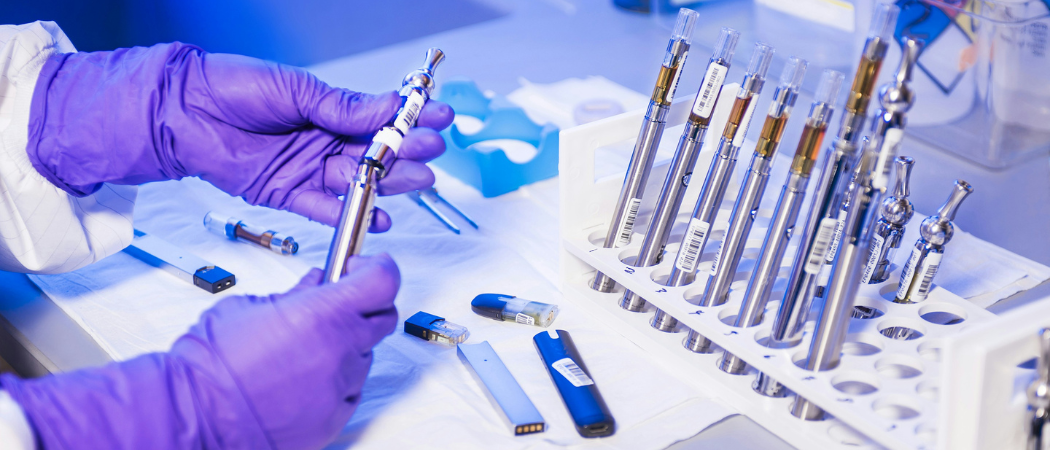Leaked draft work programme for health cluster sets out priorities and foresees significant budget increase

Photo credits: CDC / Unsplash
The Green Deal may be slipping down the EU’s list of political priorities, but it will have a significant presence in health research for the remainder of the Horizon Europe programme.
Enhancing the green transition is listed as a priority for 2025-27 in a leaked draft work programme for Cluster 1, the health research section of Horizon Europe, seen by Science|Business. It appears alongside perennial themes such as advancing the digital transition, and building a more resilient, competitive, inclusive and democratic Europe.
According to the document, the health cluster will support research that enhances understanding of the impacts of climate change on health, that develops tools to address global health challenges, and that reduces the carbon footprint of the health sector.
Aside from climate, the environment will also feature in calls for research into the effects of pollution on the development and progression of brain diseases and disorders, and an investigation of the health impacts of micro- and nanoplastics.
Other focus areas for Cluster 1 include research on disease prevention, personalised medicine, equitable and inclusive access to healthcare services, and the improvement of responses to cross-border health threats. Digital technologies and artificial intelligence will play a central role in achieving these objectives, the draft says.
Among the calls described, another new addition is research on habilitation and rehabilitation for disabilities, an area previously passed over in Horizon Europe. The Commission plans to allocate €40 million to a call focused on improving the quality of life for individuals with intellectual disabilities and their families. Objectives include early diagnosis of conditions, timely delivery of medical treatments, and interventions designed to prevent disease progression.
Budget recovery
The draft work programme foresees an increase in funding for health research, partially reversing a dramatic cut last year. In 2023, the Commission allocated €1 billion to Cluster 1, only to reduce resources to €741 million in 2024. For 2025, a €62 million increase is foreseen, bringing the total to €803 million, to be distributed across the six areas of Cluster 1.
This figure could rise further as further calls, and funding, are expected to be added to the work programme before its scheduled release in April.
Most of its calls for proposals are set to open in May, with some following a two-stage process, requiring applicants to submit short proposals first. Successful candidates will then be invited to draft full proposals.
Tackling diseases
The task of tackling diseases attracts one of the largest allocations in 2025. Calls will cover enhancing the prevention and management of non-communicable and communicable diseases; improving mental health; advancing research to combat antimicrobial resistance; and strengthening pandemic preparedness and response.
Among these priorities, one call will focus on research projects testing the safety and efficacy of phage therapy for treating antibiotic-resistant bacterial infections. Another will support the development of innovative interventions for mental, behavioural and neurodevelopmental disorders.
Meanwhile, proposals will be invited for research to develop antibodies and antibody-derived proteins for preventing and treating infectious diseases with epidemic potential. A complementary call seeks to apply artificial intelligence to pandemic preparedness and response.
The Commission also foresees an EU contribution of approximately €150 million over the next three years to the European Partnership for Brain Health. This initiative is expected to contribute to implementing the European Health Data Space. Meanwhile, an estimated €77 million will be invested in the European Research Area for Health Research public-private partnership.
For research related to the digital transition, the draft foresees a total budget of €220 million in 2025, spread across four calls for proposals. This will include research to advance inclusive and sustainable technologies, data, and digital solutions.
In particular, the Commission is planning an €80 million call to enhance cell therapies using genomic techniques. This initiative seeks to design engineered cells and overcome current limitations of cellular therapies.
Another €80 million call will focus on translating biotech research into innovative health therapies, fostering the development of groundbreaking medical solutions.





 A unique international forum for public research organisations and companies to connect their external engagement with strategic interests around their R&D system.
A unique international forum for public research organisations and companies to connect their external engagement with strategic interests around their R&D system.